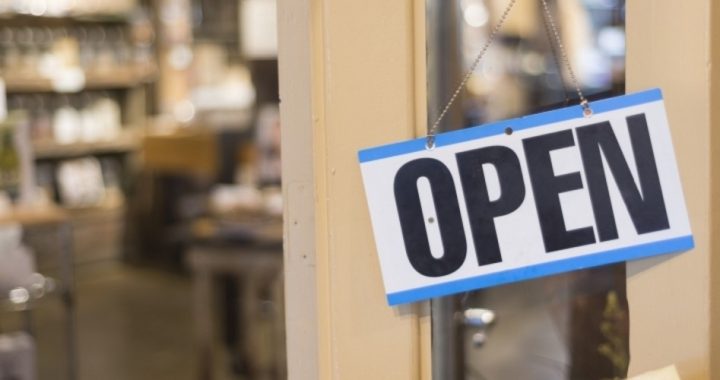
Small business owners, many being pushed to the wall financially, are ignoring demands, orders, edicts, commands or mandates from state officials to stay closed and are reopening anyway.
Authorities are pushing back by warning them not to open, or fining or revoking their business licenses when they do.
In North Carolina, a man who reopened his tattoo parlor was arrested for violating an executive order. A barber in Nevada received a warning that his license could be revoked, along with a citation and a $1,000 fine.
Paul Zimmerman, the owner of the Red Maple Inn in Guilford, Maine, was warned by the local sheriff that his license would be revoked if he reopened during the state’s lockdown.
Eliot Rabin, the owner of Peter Elliot Blue — a men’s clothing store in Manhattan — has reopened. He told the Epoch Times, “We had to open; otherwise we would go bye-bye.” Rabin said that because of the shutdown he was behind on his rent and tardy in paying his vendors. Police had come to his store on multiple occasions, ordering him to take down his “Open” sign and later stopping customers — some of whom had come from out of state to support him — from entering his store.
Rabin has said that if the state fines him he won’t pay. If they arrest him he said he’ll sue, with the help of some pro-bono, pro-liberty law firms that are itching to take a case like his to court.
Cherie Baldridge, the owner of Café El Dorado in El Dorado County, California, told Breitbart that she had to open or go bankrupt: “I will not survive another month. This place is my livelihood and it’s being taken away from me.” She said that she’s already two months behind in rent, and that “take-out isn’t going to do it. My regular customers don’t like take-out. They like to sit down, relax and eat the food here. So that’s what I’m going to let them do.”
For that she received an e-mail from the El Dorado County Environmental Management Department asking her not to allow sit-down service, but she ignored it: “I have to eat. I have to pay my bills. They’re my rights. This is my business and I have the right to keep it open.”
The next day the El Dorado County Sheriff’s Office said it had no plans to close her business or to penalize her for not following the order.
The same thing happened in Pinellas County, Florida. Galen Wood, the owner of Kitchen Table Games, was arrested back in April for staying open during the shutdown. Said Wood, “We were told repeatedly that they were not going to take a plea deal … that they were going to punish me to the fullest extent of the law.” The charges were dropped on Monday.
Chuck Roulet, a lawyer who caters mostly to small business owners, told the Epoch Times that “the ‘cure’ has become much worse than the disease, and [I and my clients] are more concerned about our financial futures that the virus.”
The increasing pushback comes at a time when the daily death toll in the country is dropping. On Monday it dropped to the lowest one-day figure since early April. It also comes when studies are showing that the lockdowns are a grievous overreaction to a virus that is far less dangerous than originally thought.
As The New American has reported on two occasions, according to medical professionals connected with Stanford University, “There’s little evidence to confirm that premise [that the virus would kill millions without a major shutdown and quarantines] — and projections of the death toll could plausibly be orders of magnitude too high.” Another study, this one from the University of California and the Los Angeles County Department of Public Health, showed that the fatality rate from the coronavirus is “much lower than originally thought.” As a result, said Neeraj Sood, one of the authors of that study, “The estimates … suggest that we might have to … rethink public health strategies.”
Small business owners aren’t waiting for that to happen. They are reopening on their own, challenging not only the edicts, orders, demands, and mandates, but the assumptions on which they are based.
Image: huePhotography/iStock/Getty Images Plus
An Ivy League graduate and former investment advisor, Bob is a regular contributor to The New American, writing primarily on economics and politics. He can be reached at [email protected].
Related articles:
New Study: Coronavirus Fatality Rate No Worse Than Seasonal Flu
Another Study Confirms Coronavirus Fatality Rate Much Lower Than Predicted




